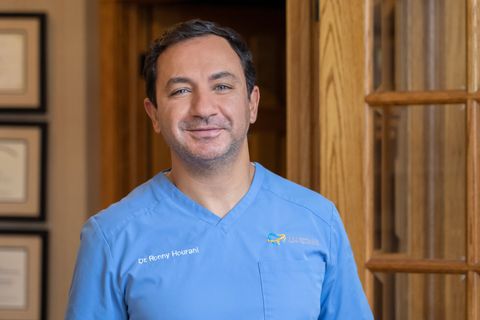Root Canal Therapy in Tecumseh, MI
Save Your Smile with Root Canal Therapy
Root canals are tiny passageways that branch off from beneath the top of the tooth, coursing their way vertically downward, until they reach the tip of the root.
All teeth have between one and four root canals.
Many tooth problems involve infections that spread to the pulp, which is the inner chamber of the tooth containing blood vessels, nerves and other tissues. When the infection becomes worse, it can begin affecting the roots. A traumatic injury to a tooth can also compromise the pulp, leading to similar problems.
A diseased inner tooth brings a host of problems including pain and sensitivity as the first indications of a problem. However, inside a spreading infection can cause small pockets of pus to develop, which can lead to an abscess.
Root canal therapy is a remarkable treatment with a very high rate of success, and involves removing the diseased tissue, halting the spread of infection and restoring the healthy portion of the tooth. In fact, root canal therapy is designed to save a problem tooth; before the procedure was developed and gained acceptance, the only alternative for treating a diseased tooth was extraction.
Procedure
A typical root canal therapy procedure is completed over one to three visits. During the first visit, a small hole is drilled through the top of the tooth and into the inner chamber. Diseased tissue is removed, the inner chamber cleansed and disinfected, and the tiny canals reshaped.
The cleansed chamber and canals are filled with an elastic material, along with medication which helps prevent infection. If necessary, the drilled hole is temporarily filled until a permanent seal is made with a crown.
FAQ
- Is Root Canal Therapy Painful?
Many patients are worried about the pain of a root canal procedure, but this is mostly a myth! The majority of patients who undergo root canal therapy experience little to no discomfort or pain. Modern updates to the procedure and anesthetic provide you with the best possible experience, allowing you to enjoy a restored tooth that can last almost as long as its healthy original – without pain or discomfort!
- Can I Just Have the Tooth Pulled Instead?
In some cases, a root canal is not possible, and the only option is to pull the natural tooth. However, this is considered a last resort – it’s always best to try and save your natural teeth! We work diligently to provide you with the best care, including saving your natural tooth whenever possible. While implants are a great alternative, you’re always better off with your natural teeth if we can restore and protect them!
Business Hours
- Monday
- -
- Tuesday
- -
- Wednesday
- -
- Thursday
- -
- Fri - Sun
- Closed
Contact Us
All Rights Reserved | Tecumseh Family Dental Care
Website Design by Artonic


